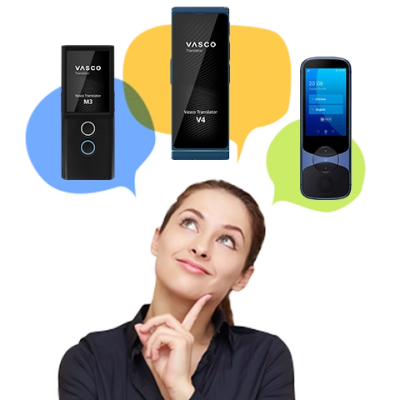
The electronic translator industry is currently experiencing a period of rapid growth. Manufacturers are innovating at an incredible pace and creating devices that make real-time translation not only feasible, but also, finally, almost as accurate as human translation.
With the advent of better technology at large (noise reducing microphones, smaller devices, better software, etc.) and AI, electronic translators have gone from adequate to outstanding. Unfortunately, the market is also swamped with bad translators— some can’t even be called proper translators; they are devices you attach to your smartphone and operate through an app (which sometimes contains malware). Other translators are decent, or even great, but you have to pay for SIM cards and expensive internet services overseas to be able to use them. What seemed like an inexpensive device suddenly turns into a money pit. That’s why we decided to rank translators based on:
Naturally, to be able to rank on our list, the device has to be an electronic translator, not a glorified speaker attached to your smartphone and operated through an app. So, without further ado, have a look at our list of some of the best electronic translators on the market today—you can be sure these translators are of good quality and come from reputable companies.
Other articles
Considering investing in a translation device? While personal research is valuable, you might prefer to rely on expert guidance! With years of experience testing voice translators, our insights can help streamline your decision. Access our rankings or utilise our comparison tool to identify the best translator based on detailed specifications. Our comprehensive guide explores selecting the ideal device for travel, corporate use, and educational purposes.
First of all, just check the language used in the country you’re going to. The first feature you should look for when buying a translator is the languages it translates. You don’t need an English to French translator when going to Russia, right? If you travel a lot, the best option is to buy a multilingual electronic translator. Is the vocabulary limited in multilingual versions? It depends. Usually, it’s not.
Second, answer the question about whether you want your electronic translator to recognize speech. Cutting-edge technology allows you to speak to the device, not just type. Sounds awesome? Still, this is the reality. Say “hello”, you’ll get “ciao” in Italian in less than 2 seconds! Remember, speech recognition technology is quite new. It still requires connection to the Internet. If not, the accuracy goes down.
Imagine you’re in hospital in Laos. How could you understand what’s wrong if your translator does not have medical words? Therefore, the range of vocabulary is also a very important feature of an electronic translator. The variety of words you can find guarantees also the accuracy of translation.
You don’t want to offend anybody with an inaccurate translation. That’s why you have to choose a device with an as accurate machine translation engine as possible. The new trend in machine translation is statistical translation. This means that the translator just looks up databases in order to find the most accurate translation. The larger the database, the more accurate the translation can be. Remember, the largest language databases still need to be looked up online, thus the translator needs the Internet.
Perhaps you are learning a language and you think you don’t need a translator? You’re wrong. Electronic translators are often equipped with many applications to facilitate learning new languages. Such apps speak to you, test your grammar, and check your knowledge of vocabulary. You can forget boring books, just take a translator on the bus or train, and learn even more efficiently.
To sum up, electronic translators are for anyone who even has the slightest contact with foreign languages. You are sure to find the one which suits your needs best. This ranking will help you do it.
Copyright © 2026 translators-ranking.co.uk